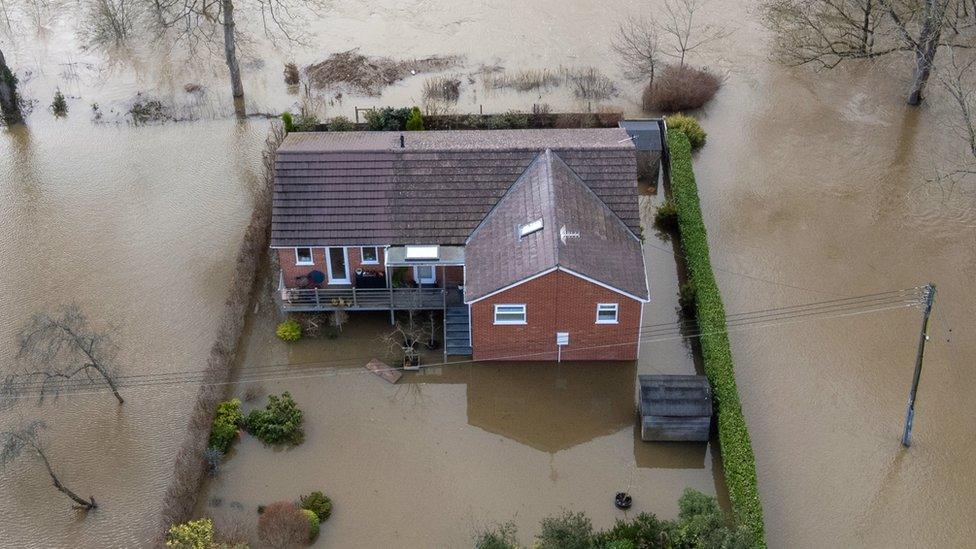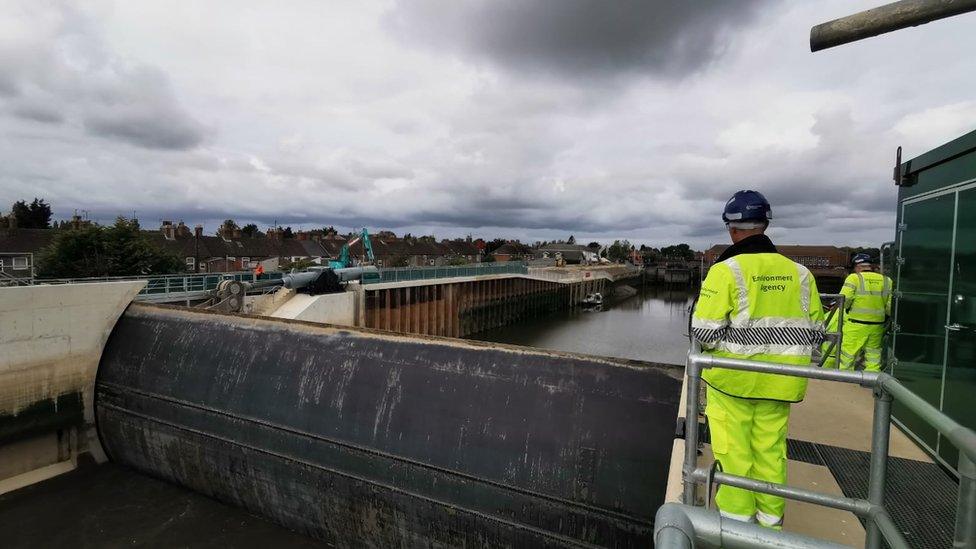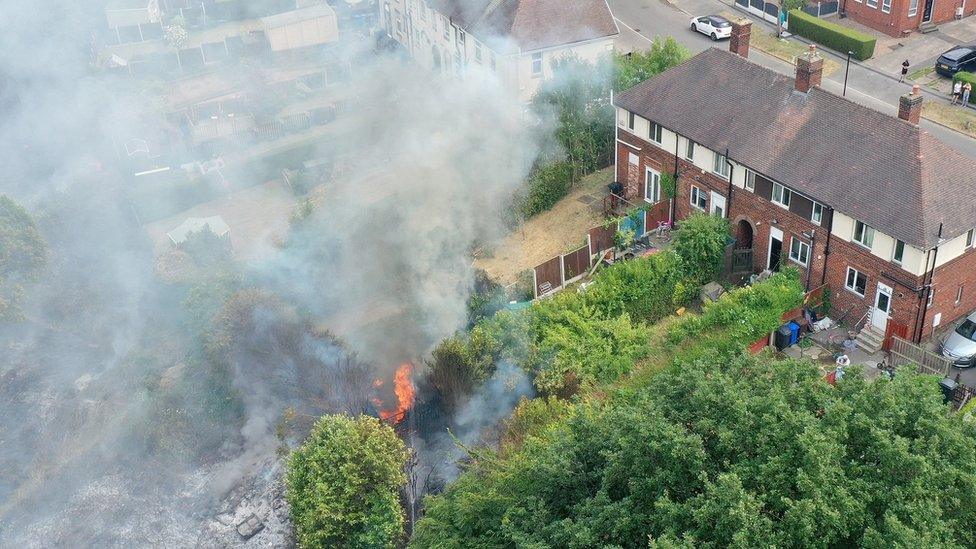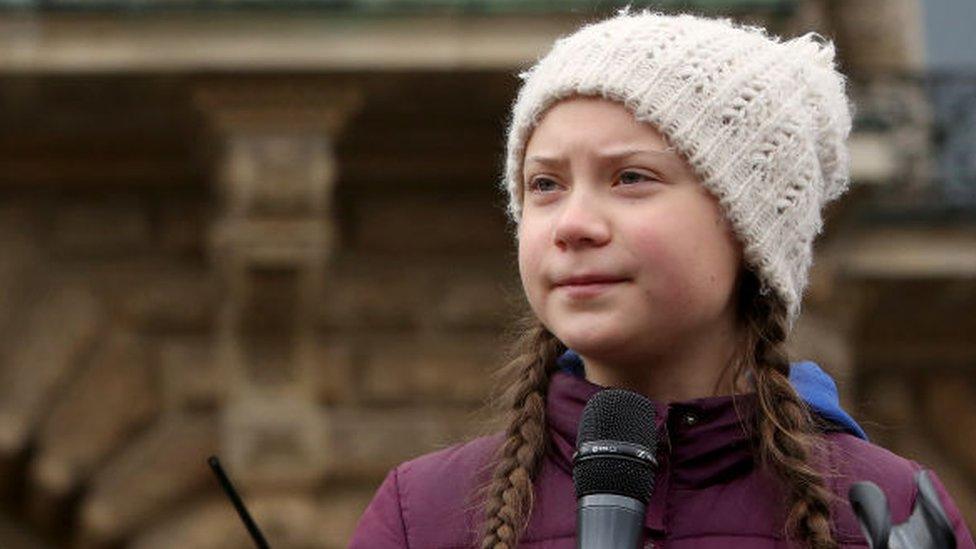Climate Change: Not enough done to prepare for climate change
- Published
- comments

Extreme weather like storms is likely to be more common because of climate change
A new report says the government isn't doing enough to prepare England for the effects of climate change.
Experts on the Committee on Climate Change, have been looking into how more extreme weather like flooding, heatwaves and storms would affect England.
They say the government isn't taking preparation seriously enough.
But the government says it has invested billions of pounds into preparing for climate change and will listen to advice from the report.
What effects could climate change have on the UK?

Floods are likely to be more common because of climate change
Climate change, which is the gradual warming up of the earth's average temperature, will have lots of effects across the world.
Lots of different animals and plants could struggle if the world gets too hot, though there are plans to try and stop that.
As the temperature rises, ice in the north and south poles can also melt which will affect sea levels, and the way hot and cold air moves around the world.
This can lead to more extreme weather like big storms, floods, and very hot, dry periods called droughts.
If the earth is hotter as a whole, droughts become more likely to happen and in more places
It also means clouds can hold more water in them before it rains - which can mean when it does rain there's more of it!
Hot air has more energy in it, so when it clashes with cold air it can create worse storms than usual
What is being done to prepare for the effects of Climate Change?

This flood barrier in Boston in Lincolnshire is the most expensive UK flood defence outside London, costing £100m
The new report says not enough is being done, but the government says it's invested huge amounts of money into protecting England from the effects of climate change.
Last year it said it had spent £2.6bn to prevent flooding across England .
Lots of places including Yorkshire, Ipswich, Boston, Ulverston and Cannington got money for flood protection in the last few years.
But today's report points out problems preparing for lots of different weather problems, not just flooding.

Sheffield was hit by wildfires last year as summer temperatures went above 40C
Weirdly, even though flooding can become more likely so can very dry weather.
The report says the government isn't doing enough to make sure farms can cope with very little rain.
Though some parts of the country are having new water reservoirs built, it may get harder to grow food if there isn't enough rain stored up in the reservoirs to water crops.
What can we do to help stop climate change?

Greta Thunberg started a climate change protest in 2019 which made her an international celebrity
Although climate change is a huge issue, and it needs countries and big companies to make changes, the UN suggests these ways you can help:
Save energy at home. Simple actions like turning devices or lights off when you're not using them can save energy.
Drive Less. Walk, cycle or take public transport to school if you can. It'll also keep you fit!
Eat more vegetables and less meat. Vegetables don't have to be boring, they can be full of flavours and spices! If you do eat meat, choosing food that's locally produced can reduce the amount of carbon produced.
Cut food waste. Every time you throw food away you waste the energy gone into growing it, transporting it and cooking it. So don't buy too much food and you could compost any spare.
Recycle. That's not just plastic bottles, but so much can be reused, repaired or reduced. Check out more recycling tips here for Global Recycling Day.
Speak up. You may be too young to decide on lots of things, but your voice is still important. Greta Thunberg got the whole world talking about climate change because she started a protest. If you want something done, make your voice heard.
